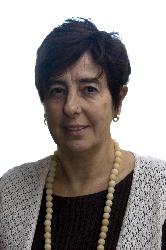
For healthy democracies to have vibrant public spheres, emphasis is often placed on the presence or absence of ‘public intellectuals’ and their role in ‘speaking truth to power’. A seminar by Dr Anthea Garman posed the frightening point that “narrowing knowledge and expertise” has lead to a notable deterioration in South Africa’s public sphere.
The Rhodes Faculty of Humanities and the School of Journalism and Media Studies hosted a seminar entitled "Public intellectual and public sphere: agent and field". The seminar took a closer look at public intellectuals and who should have the right to speak in public.
Garman’s paper aimed to do something different. In her paper she traced a lineage of how the figure of the public intellectual came to be recognised as politically and socially significant - treating the public intellectual as a "trope".
She argued that “in large, complex democracies these public persons operate as proxy individuals for the right to speak granted by democracies to all citizens, but which is not in fact realisable for the majority of people. They also embody agency which acts vicariously to reassure those who live in democracies that they have power and agency within their states.”
Dr Garman said “Very often the discussion in public about public intellectuals in South Africa is framed in the language of ‘crisis’ or ‘decline’. So quite often there's debate about those who are saying things in public not having the stature or right credentials to be ‘public intellectuals’.
There is also a view that the public sphere was not working as it should, that there was too much frivolous stuff being disseminated rather than the important, serious information citizens need.
As Garman completed her talk, the first question to be posed revolved around the much discussed persona of Julius Malema. Garman concluded that in her opinion, Malema was not a classic intellect but was certainly performing a role of a proxy.
During the ensuing debate it was pointed out that different political administration since the end of apartheid appeared to have produced a new and different set of public intellectuals. It was also noted that the media was quite capable of creating its own public intellects purely by positioning an individual in selective articles.
The seminar concluded that South Africa does have conversational debates between public intellects but at the same time also sees ongoing debates and discussions that do not run parallel and also, as a result, serve little purpose in the political sphere.
Pic: Anthea Garman
